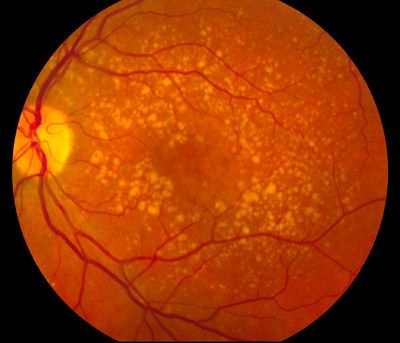Eating Eggs Linked to Lower Risk of Developing Late-Stage AMD
In a 15-year study, investigators found that moderate consumption of eggs can significantly reduce a patient’s risk of developing incident, late-stage age related-macular degeneration

Moderate consumption of eggs can significantly reduce a patient’s risk of developing incident, late-stage age related-macular degeneration (AMD), according to a new report that examined patients over a 15-year period.
Using a semi-quantitative food-frequency questionnaire, investigators were able to determine that patients who consumed 2 or more eggs per week reduced their risk of developing neovascular AMD by 62% compared to those who consumed 1 or fewer.
Investigators from Australia examined more than 3,600 patients, from the Blue Mountains Eye Study, aged 49 years or older in order to establish the prospective and independent association between the consumption of eggs and the incidence of AMD across a 15-year follow-up period.
Investigators identified 2,034 participants with complete information about their egg consumption and AMD status over the study period. The investigators confirmed AMD status using retinal photographs, while egg consumption was measured using a food-frequency questionnaire. The participants were asked about their total intake of all kinds of eggs, prepared in various styles: boiled, poached, fried, scrambled, and in omelets. Investigators then categorized the participants into groups based on consumption: 1 egg or less per week; 2 to 4 eggs per week; 5 to 6 eggs per week; and 1 egg or more per day.
Investigators found that participants who reported eating between 2 and 4 eggs per week at baseline had reduced risk of incident late-stage AMD after 15 years compared to those who consumed 1 egg or less per week. The group who consumed between 2 and 4 eggs per week had a 62% reduced risk of developing neovascular AMD compared to those who consumed 1 egg or less per week at baseline.
Study authors noted that patients whose AMD onset was at or before the 10-year follow up mark, eating between 2 and 4 or 5 to 6 eggs per week was associated with a 54% and 65% reduced risk of incident late AMD, respectively. In a further analysis, the investigators found that participants who consumed more than 1 egg in a week compared to those who consumed 1 egg or less per week at baseline had a 46% reduced risk of developing late-stage AMD after 15 years.
Investigators did not find any significant links between egg consumption and incident early AMD.
“The findings of this study are therefore important as they indicate a significant and independent association between the moderate consumption of eggs and lower risk of developing late AMD,” said Bamini Gopinath, PhD, lead investigator and associate professor at the University of Sydney School of Medicine. “However, there does appears to be a threshold to the benefit of egg consumption in relation to AMD risk as no added benefit was observed in those who consumed an average of one or more eggs per day.”
Gopinath added that dark-green leafy vegetables are established as being good sources of carotenoids, particularly lutein and zeaxanthin. Therefore, all people with AMD, regardless of disease stage, are encouraged to increase their intake of dark green leafy vegetables as part of their regular diet. Eggs also represent a cost-effective and rich source of dietary lutein and zeaxanthin.
The paper, titled “Consumption of eggs and the 15-year incidence of age-related macular degeneration,” was published in The Clinical Nutrition Journal.